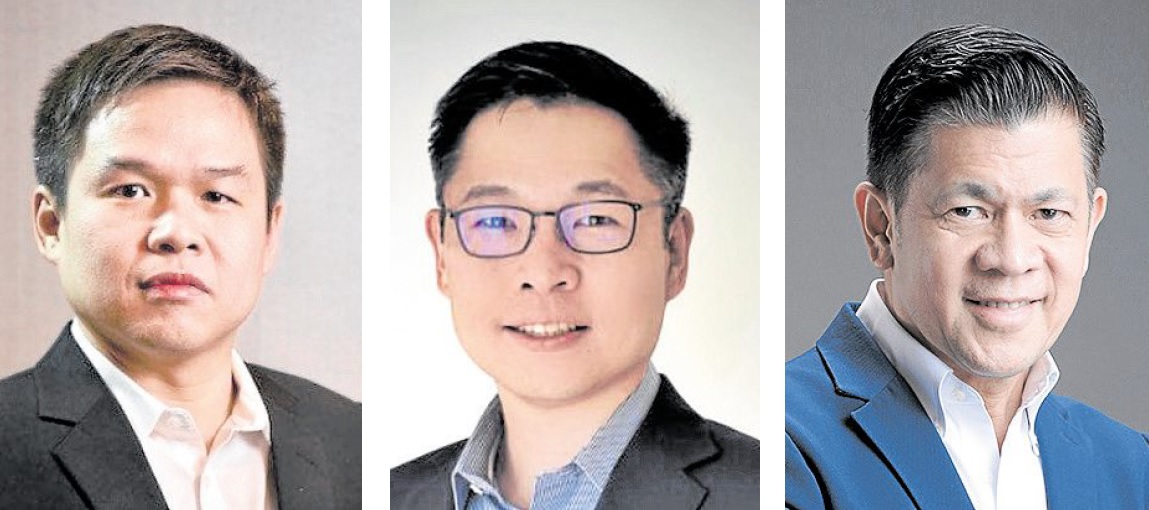Business expansion amid a crisis: Yay or nay?
At the recently concluded 12th Mansmith Market Masters Conference, we asked three veteran marketers about growing and expanding amid an ongoing crisis.
Here, Greg Banzon, COO and executive vice president (EVP) of Century Pacific Food; Harvey Ong, COO of Alfamart Philippines; and Alvin So, regional head for Asean of Bayer Consumer Health share their thoughts.
Q: How do you spot and maximize opportunities while effectively managing cost during a recession?
Banzon: Be operationally efficient, don’t just cut costs and be stingy. Always have a base plan created from actual scenarios, then, a contingency plan with defined risks. This involves having both a short-term and long-term view while adopting agile thinking. In the end, choose which among many to prioritize—so look at market size, attractiveness and similar factors.
Ong: You cannot afford to wait for research as things are changing so fast. Talk to as many people and business partners to get anecdotal evidence and formulate your own hypothesis. Look at the trends in China and other countries which were hit by the pandemic first. Their reality may become our reality after. Organizations need to be agile and adjust fast. Big companies have to let go of having too many processes to standardize. Leaders need to create a culture that provides psychological safety so that employees will be willing and able to deviate and innovate.
So: Opportunities exist, pandemic or not. Bayer shifted its resources and invested in increasing production capacity to support the significantly higher demand for nutritional supplements across Southeast Asia. As a result, we were able to serve consumer demand and help improve the health of our consumers. At the same time, we saw an opportunity to reduce investment in advertising and promotions for nonnutritional brands because of less demand, as people stayed home and were less exposed to allergies and other ailments. So even in a recession, there are opportunities to both grow and be more financially efficient.
Q: How do you mitigate risk during uncertain times?
Banzon: First and foremost, start by ensuring the safety of your employees. Track their journey during work, while traveling home and inside their homes to avoid them getting sick. Then, define risk at all levels so you can mitigate, do continuity planning and practice a dry run.
Ong: The safety of our employees was most important. We didn’t want them getting sick and passing this on to their families and our customers. So we strictly followed health and safety protocols. We reviewed where store employees were assigned, and we tried to move them closer to where they live to shorten their travel time.
To manage our financial risks, we were stricter in managing our cash flow, particularly our merchandise inventory, as well as operating expenses. We drew the line on closing down stores. The most we did was shorten the operating hours. We kept our stores running because our customers counted on us. Remaining open was in keeping with our purpose of uplifting lives in those communities.
So: Two risks to mitigate: 1) Business risk (like higher costs of raw materials and shipping, leading to lower profitability that needs to be offset with removal of bad costs that do not create value) and 2) organization risks (the people in the business). We look into both their physical and mental health, so we have people programs like meetings-free Fridays, or fun virtual team building (with no business discussions).
Q: How do you cocreate the future with key channel members?
Banzon: Go deep, get value-added insight for both parties. Extend time horizons from short-term and medium term to long term (including knowing the vision and values of clients). Do a dry run from the perspective of channel members. Distill your discussions into a few points, because channel members need to talk to so many other suppliers. That’s one reason why Century is now in over 80 countries.
Ong: Our most important relationship is with our vendors and suppliers. They are our partners in taking care of our shoppers, and we work closely to understand consumer habits and trends. Being transparent and providing direct, timely and honest feedback on how each side can improve is also essential.
So: We cocreated in two levels 1) as first/early mover in e-commerce platforms. We were the first health-care company to engage closely with our e-commerce partners a few years ago and as a result, we became the top brands in e-commerce with a much higher share than what we had in retail stores, and 2) in Digital, we launched the first ever Consumer Health Care Tiktok Campaign in Asia with the Berocca 2pm Tiktok dance challenge in Vietnam.
The insight was very simple yet powerful, our energy levels are lowest at 2pm. Everyone can relate to this, and we invited our consumers to take the Berocca 2pm challenge and showcase their dance moves in Tiktok. It was a massive success. We got over 300 million views in two weeks, and we were even awarded a Global Trendsetter Award by Tiktok.
Q: Any practical tips for entrepreneurs and marketers?
Banzon: Crises, no matter how big and expansive, have a lifespan, and they never last forever. Try to forecast impact and duration and how to maneuver your company.
Ong: Always start with the consumer and ask yourself if your product or service is relevant. If not, improve it. If yes, ensure you have access to funding for expansion separate from the money you need for your base business. Importantly, are you organized for growth? Do you have the capacity and capability to do more? And finally, also consider the opportunity cost or the consequences of not expanding. Remember, your competition will not be keeping still.
So: Start with an ambition. Having ambitious thinking will ultimately lead to success even if your original plan changes drastically. Therefore, be flexible and agile in strategy and execution. Success will follow.
